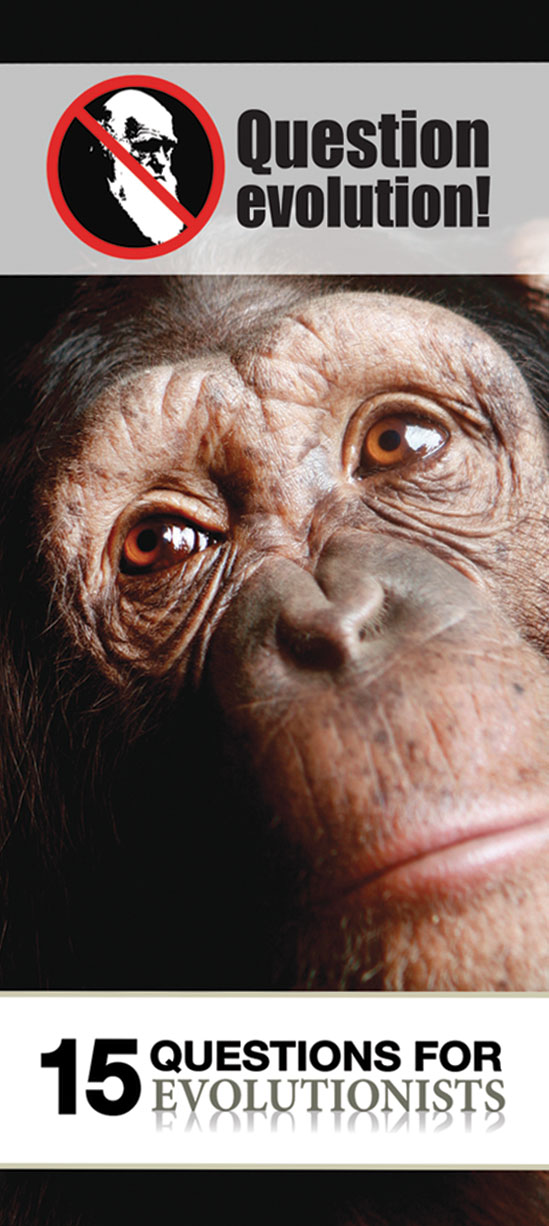Feedback archive → Feedback 2012
Genetic entropy and human lifespans
If the human genome is degrading, shouldn’t lifespans be getting shorter?
In today’s feedback, Dr Robert Carter shows how the increase in average human lifespan over the last few centuries is consistent with genetic entropy, and Dr Don Batten answers a skeptic who thinks that a high-school-level education in biology is sufficient to answer informed creationist objections to evolution.
Leo V. from the United Kingdom writes:

I hear a lot from my work friends that people in the Western countries are living to be older and older. If this is true, this would counter evolutionary theory. Sanford’s book on genetic entropy and Cuozzo’s ‘Buried Alive’ (showing evidence that worldwide we are maturing younger-meaning our life spans should shorten) would demand that our life-spans should shorten.
Is it bad research that indicates man is living longer today? God bless you in you work, Leo
CMI’s Dr Robert Carter replies:
Dear Leo,
You ask a great question. I will do my best to explain.
Consider this set of numbers: 0, 2, 4, 6, 8, 10, 12, 14, 16, 18, 20.
The average of these = 10.
Now consider this set of numbers: 8, 10, 12, 14, 16, 18, 20.
The average of these = 14.
The only difference is that I dropped the first several numbers to create the second set.
This has a direct parallel to human lifespans in modern times. Through the wonders of modern technology, we have figured out how to cure many childhood diseases that used to kill huge numbers of infants and toddlers (cholera, whooping cough, typhoid, small pox, etc.). In essence, we have dropped the highest category of death and moved these people up into the middle of the lifespan distribution. This drastically affects average lifespan, as illustrated in the difference between the two number sets above.
It does not, however, affect maximum lifespan.
Also, we have figured out how to cure, or at least attenuate death rates, for many things that used to kill people in the middle of their lives (heart disease, prostate and breast cancer, etc.). That moves people up into the older category and shifts the average life span upward even farther. It was almost unheard of 100 years ago that someone could recover from cancer and live another 20 or 30 years, but this is now commonplace.
As above, this does not affect maximum life span, even if it does get more people up into the highest category than got there prior to modern medicine.
Third, if humanity is slowly losing its natural lifespan through genetic entropy, it would not be observable in any short time span. It should be expected that the average lifespan for a person in the 1800s should be approximately the same as for a person today, if one could exclude all other factors like diet, disease, accidents, war, etc. This, of course, is impossible to do, so all we can do is look at the historical record and make a best guess.
Doing so shows that people today are living longer. But, this is not due to anything other than nutrition, hygiene, and medicine. In essence, we have learned a lot in the last several hundred years and this is allowing more people to live to greater ages than in the past.
For your interest: Living for 900 years, Decreased lifespans: Have we been looking in the right place?
Sincerely,
Dr. Robert Carter
John G. from Australia writes in response to article Question evolution! with comments from Dr Don Batten interspersed:
My science education on biology finished in high school, yet I can answer about 1/2 of these.
Firstly, if you read the linked material that explains each question, you might find the questions are harder to answer than you think.
Secondly, if you read the attempted responses that have been published, you might also find that your proposed answers don’t stack up as you might imagine. We have published the best responses we have received:
- Responses to our 15 Questions: part 1
- Responses to our 15 Questions: part 2
- Responses to our 15 Questions: part 3
You might be interested to know that I wrote the 15 Questions. I have a PhD in biology and over 20 years’ experience in full-time hands-on research. The 15 Questions were also vetted by two other PhD biologists. All our doctorates were earned at secular universities. So you might like to re-think your idea that your high school biology cuts it in being able to answer questions that even high-profile evolutionists with research degrees admit are a problem.

Why is it that people seem to link creationism with God and evolution with atheism?
Creation demands a Creator; evolution (Nature created itself) does not.
Disclaimer, I am an atheist, but that’s got nothing to do with evolution.
Thanks for being up-front about that.
There are many many religious people of many faiths that have no problem with evolution.
Of course ‘religious people’ can believe in evolution. The vast majority of the world’s population is ‘religious’ and believe all manner of things. Satanists especially believe in evolution. But I am not really interested in ‘religion’, but in Jesus Christ as Creator, Lord and Saviour of the world. Jesus said that no one comes to the Father but via him (John 14:6). Either he was correct about that, in which case all other religions are false religions, or he was wrong, in which case I should not be a Christian.
In fact one Christian friend of mine said “What better way for God to work then to set up the dominoes and watch them fall down” (referring to evolution).
Yes, I was one of those who thought that evolution might have been God’s way of doing things. But that was before I really thought about the implications. Here is the story of another PhD biologist Christian who recognized the problems also, Dr David DeWitt: Why I rejected ‘theistic evolution’. The following article spells out some of the difficulties in a Christian accepting ‘God used evolution’: 10 dangers of theistic evolution. And this one augments it: Some questions for theistic evolutionists. You might like to share these with your Christian friend and ask for a response.
But I think that the very fact that you have bothered to comment on our Question Evolution campaign indicates that it is not the non-issue for you that you say it is. Indeed, I can’t see how any atheist could be ‘open-minded’ about this. If evolution does not work (and it doesn’t) then atheists are left without the crutch of naturalism to prop up their stated non-belief in a Creator. As Richard Dawkins said, Darwin enabled him to be an intellectually-fulfilled atheist. It’s pretty fundamental to atheism. And I suggest that’s why our campaign bothers you.
Instead of spending money on a silly campaign, you guys really should go out and read some of the science (from real scientists from accredited universities in the field of evolutionary biology).
I suggest you read some more of biology from a creation point of view, from biologists who have real doctorates from accredited universities, on our website. Peer-reviewed papers are published in the Journal of Creation (archived on creation.com). You will find that we are well-read in evolutionary biology, whereas evolutionists are forever misrepresenting creationists (straw man arguments are much easier to dismiss).
With kind regards,
Don Batten
Re-featured on homepage: 11 September 2021








Readers’ comments
Comments are automatically closed 14 days after publication.